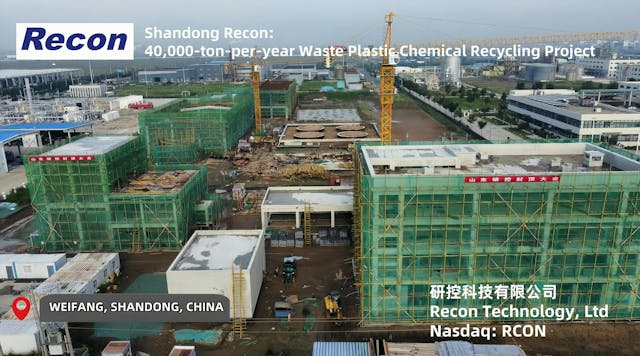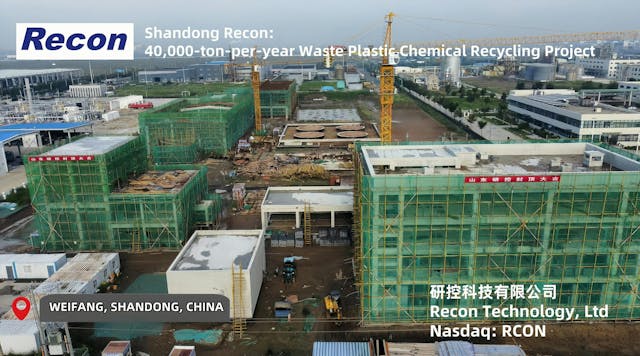

Securing the Online Frontier: How Cloudflare Verification Shapes Business Trust in a Digital Era
The digital age comes with its own set of tricky parts and tangled issues. One of the most noticeable examples is the way websites verify that you are a human visitor. When you access a site like www.sustainableplastics.com and are greeted with a prompt stating, “Verifying you are human. This may take a few seconds,” you are witnessing one of the many measures developed to safeguard online interactions. Although such verifications might seem off-putting or even nerve-racking at first glance, they play a super important role in maintaining a safe and efficient online experience for everyone—from small business owners to industry giants.
In this opinion editorial, we take a closer look at how these security measures, powered by tools like Cloudflare, contribute to the robust digital environment necessary for today’s businesses. We closely examine their impact on industries ranging from sustainable plastics and industrial manufacturing to automotive and electric vehicles, along with their intersections with new business tax laws, economic news, and marketing strategies.
Understanding the Online Verification Process and Its Impact on the User Experience
When visiting a website, encountering a message that asks you to wait while your connection is being verified might seem like a trivial interruption. However, this seemingly simple process has several layers of important functionality built into it. Essentially, it checks your connection against a host of potential security threats, assuring both the visitor and the digital asset owner that the connection is secure.
Cloudflare, one of the leading providers of these security measures, uses what can be described as a set of behind-the-scenes examinations. The process involves sending a verification request, analyzing the IP address, and confirming that the visitor is not a bot. Once the verification is successful, you see a message confirming that you are free to continue exploring the website. Though this procedure includes some confusing bits and hidden complexities, importantly, its ultimate aim is to protect online spaces from potential abuse, ensuring that the digital ecosystem stays healthy and secure.
This verification process, while occasionally intimidating due to its impersonal nature, is a crucial gatekeeper ensuring that traffic coming to your site is genuine. In an environment where cyber threats are continually on edge, measures like these help keep businesses and their customers safe.
How Confirmation Messages Enhance Trust for Small Businesses and Large Industries
The necessity of validating online users has grown in tandem with the digital transformation seen across many industries. For small businesses, the responsibility to maintain secure websites is not just about protection from cybercrime; it also builds a sense of trust with clientele who increasingly expect robust digital interaction.
Security checks are particularly significant for sectors such as industrial manufacturing and sustainable plastics. These industries, known for their technological integration, often handle sensitive business information and, in some cases, proprietary data. Thus, taking a moment to verify your connection becomes a subtle marker of a company that values both safety and customer transparency.
Through these security verifications, companies can deliver a message: “We care about your data and aim to provide you with a secure online experience.” For businesses operating in highly competitive fields, such as automotive and electric vehicles, where innovation and quick response times are key, this reassurance is fundamental. The extra second you spend confirming that the connection is safe is arguably well worth it.
In addition to keeping out unwanted automated scripts or potential hackers, these messages can also signal to visitors that the company behind the website is up-to-date with modern security practices. In an environment full of tricky parts and tangled issues, this small indication of security can encourage customers to invest their trust—an essential ingredient in any successful online relationship.
Linking Digital Security with Marketing and Business Strategy
In today’s digital marketing landscape, the reputation of your online presence is as key as any traditional advertising tactic. With cyber threats becoming more prevalent, advertisers and marketers are under increasing pressure to ensure that every online interaction is safe and secure. Incorporating robust security measures, such as human verification tools provided by Cloudflare, is not only about blocking bots but also about reinforcing brand integrity.
When your prospective customer sees that your website employs modern security measures, even if it involves an extra screen or verification step, it leaves a lasting impression that your company is serious about protecting data. The extra hurdle might be seen as a minor inconvenience, but it signals that the organization takes digital integrity seriously—an assurance that can differentiate a business in crowded markets of small business operations or industrial manufacturing.
This strategy dovetails effectively with marketing efforts in several ways:
- Enhancing Customer Trust: When customers notice that your website consistently takes precautionary steps, it can lead them to believe that you handle other business aspects with equal rigor.
- Improved Brand Reputation: In an era where cyber breaches are headline news, a secure and verified website serves as a badge of honor.
- Competitive Advantage: For businesses in sectors such as automotive or electric vehicles, where competitors are numerous, emphasizing safe online practices can be the slight edge needed.
Marketing strategies today evolve to highlight both tangible product benefits and the assurances of operational integrity. In practice, this means that the extra steps to verify connections are not just functional checks; they are nuanced media through which companies communicate reliability.
The Role of Online Security in Industrial Manufacturing and Sustainable Plastics
Industries like industrial manufacturing and sustainable plastics face a unique set of challenges. Their digital platforms are often linked to supply chain management, sensitive manufacturing data, and a global clientele. It is here that the hidden complexities of online security are especially significant.
The manufacturing sector, which operates on tight schedules and with process data that requires high confidentiality, benefits directly from rigorous verification methods. Consider the following points:
- Data Protection: High-value proprietary processes and trade secrets are safeguarded through robust verification, ensuring that only legitimate users gain access.
- Operational Reliability: With added layers of confirmation, manufacturers can reduce the risk of potential cyber intrusions that could disrupt operations.
- Business Continuity: Secure websites play a critical role in upholding the continuity of business processes, especially when they interact with external supply chains.
For the sustainable plastics industry, which is rapidly growing amid global environmental challenges, securing digital assets ensures that research data, client interactions, and marketing communications are shielded from external threats. Such industries are frequently in the public eye, and a breach or lapse in security could have far-reaching implications, including damaged public image and loss of client trust.
Cloudflare’s security checks, which involve confirming a human presence on the system, integrate seamlessly into these industries. They help companies figure a path through the escalating landscape of cyber threats by guaranteeing that only genuine interactions occur on their platforms. In this light, every verification step is a building block in constructing a digitally secure business framework.
Online Verification and Its Broader Impact on Automotive and Electric Vehicle Markets
The automotive industry and its booming counterpart, electric vehicles, are not left out of the digital security conversation. As websites become a primary touchpoint for customer engagement—from vehicle launch events to post-sales service descriptions—the requirement for each user interaction to be both safe and verified becomes paramount.
In these sectors, the adoption of security measures such as Cloudflare’s human verification is especially crucial for several reasons:
- Protecting Customer Data: Buyers share sensitive financial and personal information during the purchase or service booking processes. Encryption and human verification work together to mitigate data theft.
- Maintaining Service Reliability: As automotive companies transition to digital-first approaches to customer service, ensuring that bots do not overload servers is essential for smooth operations.
- Building Brand Credibility: Similar to other industries, a verified website boosts consumer confidence, a must-have trait for sectors aimed at innovation and futuristic transportation.
Online security in these sectors is a testament to the delicate balance that companies must maintain. They need to provide quick and efficient service while simultaneously ensuring that every digital interaction passes through layers of scrutiny designed to block malicious entities. In the final analysis, a successful digital strategy in the automotive and electric vehicle markets isn’t just about advanced features in vehicles but also about the robustness of digital support systems.
The Hidden Complexities and Benefits of Cloudflare’s Verification Process
Cloudflare’s verification process might seem like an unwelcome hurdle to some users, but when you take a closer look, its benefits extend far beyond mere gatekeeping. The process is a quiet yet effective safeguard that checks each connection for authenticity. By doing so, it helps create a digital atmosphere that is less prone to cyberattacks, bot intrusions, and other unwanted digital intrusions.
This verification is structured in a methodical way. Here’s an illustrative table that breaks down the process:
| Step | Action | Impact on User and Business |
|---|---|---|
| 1. Initial Connection | The user requests to access the website. | Establishes a connection path that is ready for scrutiny. |
| 2. Security Check | Cloudflare performs a verification by analyzing IP data and patterns. | Filters out potentially harmful bots or automated scripts. |
| 3. Human Verification | The system confirms that the visitor is a legitimate user. | Enhances user trust and protects sensitive data against cyber risks. |
| 4. Access Granted | The website fully loads for the user. | Ensures that only human traffic accesses the site, safeguarding business operations. |
Each step in this process, while involving some slightly daunting waiting time, is aimed at steering through potential cyber threats that are increasingly common. For many businesses, particularly small ones that might feel intimidated by the threat of cybercrime, knowing that their website is protected by such reliable technology is a reassurance of super important value.
Working Through Security Challenges: The Fine Points for Small Business Owners
For many small business owners, the process of adopting strong online security measures can feel overwhelming and off-putting. Amid the busy day-to-day details of running their business, adding an extra layer of digital protection may appear as a complicated piece of operational overhead. Yet, when the hidden benefits are scrutinized closely, it becomes clear that such measures are more than necessary—they are a key component of a modern business strategy.
Here are some subtle details that small business owners might appreciate when considering technical security tools such as Cloudflare:
- Customer Assurance: A secure website reassures clients that their personal and financial data is safe, which is critical for maintaining a good reputation.
- Preventing Service Disruptions: A robust security system helps manage traffic and prevents malicious attacks that could disrupt essential online services.
- Cost-Effective Security Investment: Compared to the potential high costs of data breaches or cyberattacks, investing in proven technologies like these can be seen as practical and necessary.
- Scalability: As your business grows, having an already robust security infrastructure in place means you’re better equipped to handle increased traffic and evolving cyber threats.
The process of verifying your audience may involve a few nerve-racking moments—those minute delays caused by digital checks—but they are a small price to pay for the ultimate benefit of a secure, well-protected online business. With every additional safety measure, you are building trust and a competitive advantage in an environment that is often as challenging as it is promising.
Integrating Robust Security with Broader Economic and Tax Considerations
Beyond customer trust and operational reliability, online security and verification measures have a role to play in discussions around business tax laws and economic news. As governments and financial authorities increasingly focus on cybersecurity, companies that demonstrate a commitment to digital integrity might find themselves better positioned during regulatory reviews or audits.
Tax incentives and other economic benefits sometimes accompany investments in cyber security. In an era where digital dependence is not a temporary trend but a permanent fixture of business operations, secure online systems are often considered an essential part of corporate infrastructure. This is particularly true in highly competitive industries, where even small breaches of trust can affect market ratios and operational margins.
For companies across diverse sectors—from sustainable plastics to cutting-edge automotive innovation—integrating strong online security measures into their business models can have a ripple effect. Not only does it protect sensitive information from being compromised, but it also enhances overall operational efficiency. Economic news has repeatedly shown that enterprises with robust digital infrastructures often enjoy better financial performances and more stable long-term growth.
How Modern Digital Tactics Support Sustainable Business Practices
Sustainable business practices are not solely about environmental responsibility; they also encompass the way a business operates digitally. In the rapidly evolving landscape of waste reduction, energy efficiency, and innovation, ensuring that every aspect of a company’s digital infrastructure is secure becomes a must-have concern.
For example, a company in the sustainable plastics industry uses advanced online verification, not just to screen out bots, but also to secure its platform where significant research, client interaction, and product data are exchanged. Trust in the digital ecosystem is a cornerstone of modern sustainable practices because it supports efficient communications and fosters an environment where innovation can thrive without interruptions from cyber threats.
Integrating security measures aligns with resource efficiency. By preventing intrusions, companies avoid expensive downtimes and loss of critical data. This, in turn, contributes to a more streamlined business process where everything from digital marketing to supply chain management operates with an assurance of stability and integrity.
Balancing the Delicate Ecosystem: The Consumer, the Business, and the Tech Provider
At the intersection of effective marketing, secure online presence, and robust technology solutions lies a delicate ecosystem where consumers, businesses, and tech providers like Cloudflare each have their roles to play. Consumers demand security and efficiency, businesses require dependable tools to safeguard their assets, and tech providers innovate continuously to offer cutting-edge solutions.
This balance is critical. While consumers might occasionally find waiting for a verification message to be a minor inconvenience, the broader perspective reveals that these measures are a cornerstone of modern digital interactions. In today’s market, where every online interaction counts, having a secure and protected website is more than just a technical checklist—it is an essential part of being a trustworthy business partner.
Working through this ecosystem involves understanding that each entity contributes to a collective effort toward digital safety. The responsible use of advanced security protocols helps steer through the twisted issues and hidden complexities that define today’s digital world. For tech providers, it is about continually improving their methods; for businesses, it is about embracing technologies that enhance both operational efficiency and customer trust; and for consumers, it is about recognizing that these small delays and extra steps ultimately lead to safer online transactions.
The Future of Digital Security in a Rapidly Evolving Business Environment
Looking ahead, it is clear that the digital landscape is only going to become more densely populated and complex. Future challenges may include even more nerve-racking cyber threats, increasingly sophisticated automated attacks, and an ever-growing need for precautionary measures. Cloudflare’s role as a security gatekeeper is likely to expand beyond simple human verification to include multi-layered security systems that adapt to emerging trends.
Small business owners and large enterprises alike will need to continuously adjust their digital strategies. Other technologies such as blockchain for data verification, advanced machine learning algorithms for threat detection, and even decentralized authentication systems are on the horizon. Adapting to this fast-paced environment will require businesses to remain agile, continuously learning and adjusting their online practices.
While these developments may introduce their own set of confusing bits and complicated pieces, one thing remains clear: digital security is not a static challenge but a dynamic one. It demands that we consistently take a closer look at our existing practices and be ready to invest in new solutions. This forward-thinking approach, though sometimes intimidating, ensures that companies are well-prepared for the subtle details of tomorrow’s digital economy.
Strategies for Adapting to New Security Protocols in the Digital Marketplace
There is no denying that evolving digital security protocols demand that businesses stay informed and agile. For decision-makers, this means adopting a mindset that welcomes continuous learning. Here are some strategies that businesses can use to get into the security game effectively:
- Invest in Training and Awareness: Ensure that all team members understand the importance of secure online practices. Training should cover basic cybersecurity measures, the role of verification tools, and the best ways to protect sensitive data.
- Embrace Cutting-Edge Technologies: Stay updated with the latest security protocols. Whether it’s multi-factor authentication or advanced CAPTCHA systems, modern technologies can significantly reduce the risk of cyberattacks.
- Implement Regular Audits: Regularly review your website’s security infrastructure. This can help you identify potential vulnerabilities before they become problematic.
- Establish a Clear Communication Strategy: Inform your customers about the importance of these security measures. Transparency can build trust and demonstrate that your business values the safety of user data.
These strategies, while straightforward, involve a series of twists and turns that require time and effort. However, the cost of not doing so is much higher. A breach or failure of digital infrastructure can have long-lasting repercussions on both reputation and profitability.
Real-World Implications: How Secure Online Practices Affect Business Outcomes Across Industries
In real-world scenarios, the benefits of a secure online presence extend beyond preventing hacking attempts—they also manifest in tangible business outcomes. Companies that maintain robust verification systems often report higher customer satisfaction, fewer operational downtimes, and stronger overall reputations within their sectors.
Let’s break down some industry-specific outcomes:
- Sustainable Plastics: Secure websites ensure that collaborations, research data, and supplier information remain confidential. This creates an environment where innovation can flourish without the threat of external disruptions.
- Industrial Manufacturing: A reliable digital infrastructure minimizes risks in supply chain communications. This translates into smoother production cycles and a lower likelihood of costly cyber intrusions.
- Automotive and Electric Vehicles: In these industries, maintaining customer data security is indispensable. It impacts everything from vehicle financing processes to post-sale service engagements.
- Small Businesses: Security issues can directly threaten the viability of a small business. Demonstrating that your website is well-protected can be a deciding factor for potential clients or partners.
A table summarizing these effects could look like this:
| Industry | Security Benefit | Business Outcome |
|---|---|---|
| Sustainable Plastics | Data Protection & Client Trust | Innovation and Market Leadership |
| Industrial Manufacturing | Supply Chain Reliability | Smooth Operations and Cost Savings |
| Automotive / Electric Vehicles | Customer Data Security | Enhanced Brand Reputation and Customer Loyalty |
| Small Businesses | Secure Online Interactions | Improved Competitive Edge and Trustworthiness |
As these examples show, the often nerve-racking process of security verification is anything but a mere annoyance. Instead, it is a critical pillar supporting broader business strategies and ensuring that every stakeholder—from the smallest entrepreneur to industry behemoths—can operate securely in an increasingly digital world.
Final Thoughts: Embracing a Culture of Security for a Resilient Future
The message behind the brief “Verifying you are human” notice is far more profound than a simple system check—it represents a commitment to maintaining a safe and secure digital ecosystem. For businesses operating across varied fields such as sustainable plastics, industrial manufacturing, automotive, and electric vehicles, this commitment is key to ensuring seamless online interactions.
Although the extra seconds spent confirming a secure connection may seem like a delay, they are in fact an investment in safeguarding your business from future risks. By embracing these measures, companies are not only protecting sensitive data but also building a culture of trust and operational excellence. In today’s digital economy, where every connection matters, ensuring that your online portal is secure is an essential component of long-term success.
Ultimately, the practice of verifying human interactions on a website—and the overall approach to digital security—should be seen as an integral part of your broader business strategy. In an era filled with hidden complexities and nerve-racking bits, the small delays and seemingly cumbersome processes remind us that the integrity of our digital interactions is super important. It is through these measures that businesses can confidently step into the future, knowing that their digital foundations are robust, resilient, and ready for the challenges ahead.
The path forward involves not only adapting to new technologies but also fostering partnerships between security providers, business leaders, and policy makers. This collaborative approach ensures that as industries evolve, the underlying principles of trust, protection, and reliability remain steadfast.
As we take a closer look at the changing dynamics of online security, it becomes increasingly clear that every digital measure, no matter how minor it may seem, plays a role in shaping the economic landscape. For the small business owner, the manufacturer, the automotive innovator, or any entity operating in this space, the message is unambiguous: security is not simply an add-on feature—it is a critical foundation upon which trust and success are built.
In closing, while the verification page on sites like www.sustainableplastics.com might prompt a brief pause, it is emblematic of a broader commitment across industries to create a secure, reliable, and trustworthy digital environment. Embracing this reality—together with continuous innovation—will ensure that businesses of all sizes continue to thrive in a digitally interconnected world.
Originally Post From https://www.sustainableplastics.com/news/recon-builds-40000-chemical-recycling-plant-china
Read more about this topic at
2 Easy Ways to Bypass “Please Verify You Are a Human”
I am filling out a google form that I created. The human …


